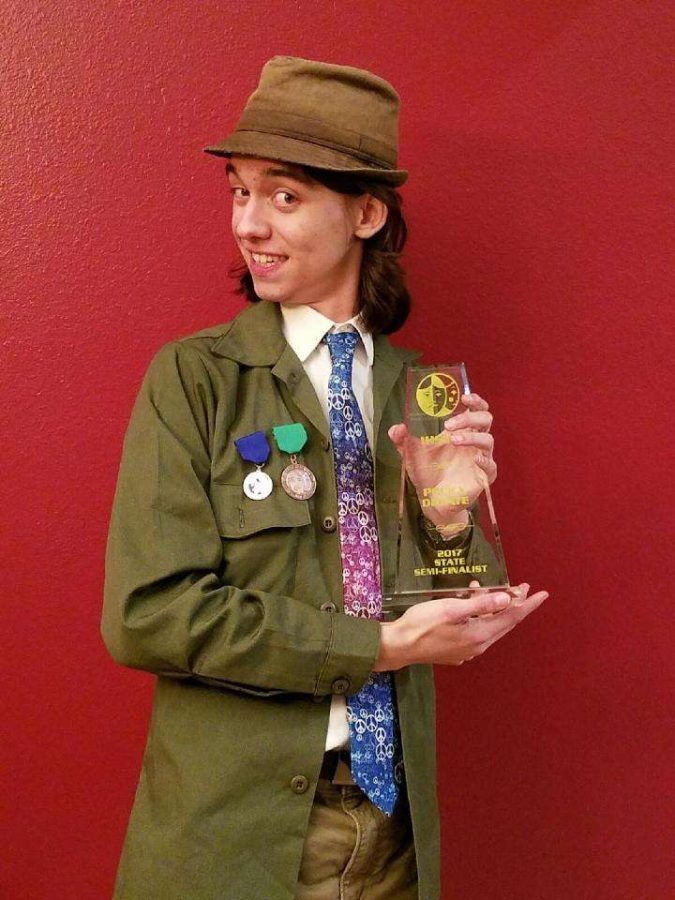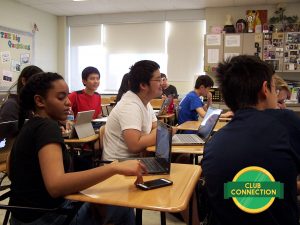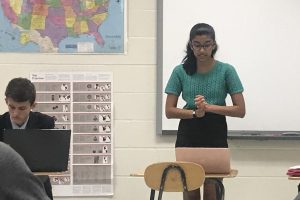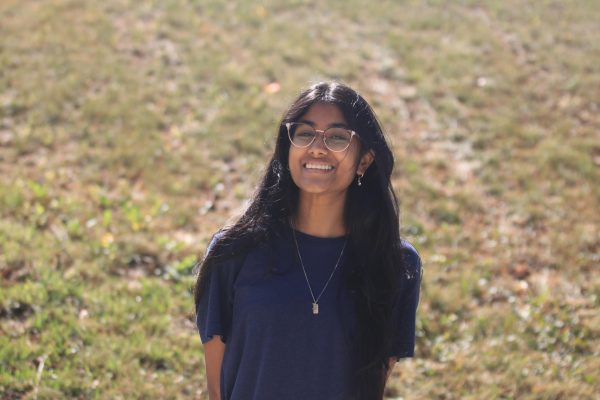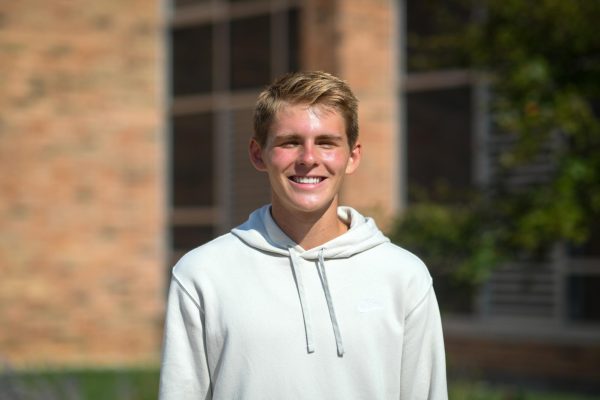Debater from the start: Student to Coach
Kalen McCain ’17 reflects on his time debating Policy as a student and a coach.
January 26, 2023
Meet Kalen McCain, a West High alumni turned debate coach, and learn about his perspective on how debate has impacted his career. Since graduating, McCain works as a reporter at the Southeast Iowa Union, head debate coach at Liberty High School and assistant debate coach in ICCSD.
What is your name, pronouns, and grad year from West High?
“Kalen McCain, he/him, 2017.”
What is your role in debate at the moment?
“I am the head coach at Liberty High School, and I am the step-coach at West High School. I’m not paid by West High, but I still coach the kids.”
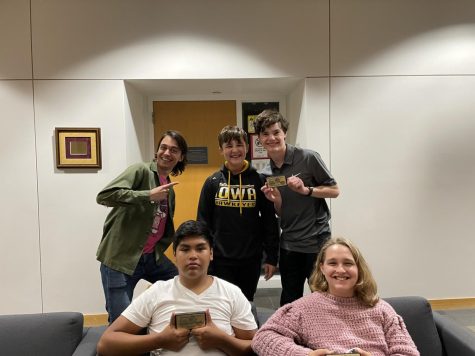
Could you describe your win record, major accomplishments, and experiences in debate?
“My win record in high school was pretty average. I was surrounded by a lot of very talented people who were more talented than I was at debate. If I had to bet, my high school through college win record in debate is about 4 to 3 wins to losses … I won the first tournament I ever did and I won [the] first tournament my senior year. Those are crowning achievements that are specific to me.”
Why debate, of all activities?
“Around the end of junior high, I was involved in three radically different corners of student involvement. I was in taekwondo, I was in theater. I wanted to try speech because I was so into theater. The speech and debate team rolled up to Northwest Junior High, and they’re like, ‘Sorry, we only have debate this year.’ And I was like, ‘Alright, I guess I’ll do debate.’ It ended up going really, really well. My debate partner and I won that tournament in the mix of him carrying me and just good luck. I [then] recognized that this was something that I really enjoyed more than the other things I was doing.”
“I think the appeals of debate are different for each person. It’s competitive [for] people who want to win. It’s also very thought-intensive … I think the combination of a focus on current events and critical thinking, being smart and making the right arguments at the right time, and working with a partner [in] a social activity all really called to me.”
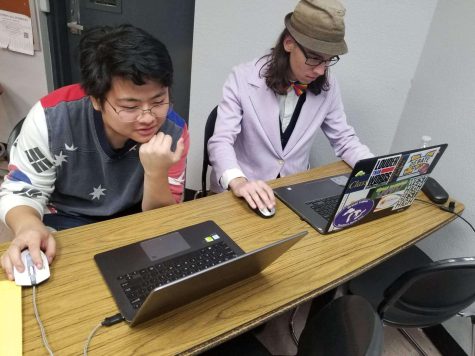
Why policy debate, out of all other events?
“Two answers. One, back when I did debate, the West High debate team was not what it is now. It was considerably smaller, and while we had a speech team, it was kind of small and the debate team was just policy. There were about a dozen kids at any given time on the policy team at least. We didn’t really have that much access to the other debate formats. The opportunity was presented to me, but policy was really where most of the focus was, so it didn’t make a lot of sense to go into the other debate types.”
“In retrospect, I think [that] policy would have been [the] best for [me]. It’s a partner activity, you’ve got to debate with your debate partner. You’re on the same team every round, and it taught me this sort of teamwork aspect of activity that was not exactly present in my life at that point. I think that, one, policy goes fast as far as critical thinking, it needs you to think on your feet, and it’s very research intensive. Those are all things I’m pretty good at. Two, [it] has you work with a partner and be collaborative, which is not a skill I was seeking out but it is a skill that I received, which is very important.”
Why have you continued to pursue policy debate as a coach?
“Policy debate, it’s really important for kids. Policy debate has participants do switch-side debate, [where] you’ve got to debate the affirmative and the negative of a topic. You’ve got to think on your feet. You’ve got to be responsive, you don’t get to pre-prepare everything … Policy debate requires students to engage with one another and to not just think about perspectives they don’t understand, but actually listen to and understand them. This is something that happens almost never, honestly. I think it’s really important. It’s a super niche activity that I’ve always really enjoyed and I want to keep on spreading to kids.”
What’s been the most valuable lessons you’ve learned or experiences you’ve gained as a debate student and/or coach?
“I think that [debate] is almost paradoxical. Debate teaches [you] that you agree with other people more than you know. When there’s a topic, you’ve got to think on the affirmative side and the negative side of the topic. Oftentimes, you’re making really good arguments on both sides. Debate teaches you that the people you disagree with still have good ideas. They still have justifications that make sense. I think so often, it’s tempting to just sort of write off what other people say as just them trying to reduce it to their side of the story or they’ll try to create narratives of bad faith … Other people have justifications for what they say and it is worth it to hear them out for the sake of understanding them. This is [something] I think applies a lot in my job right now. I need to listen to people whether I agree with them or not. Debate really teaches you that there is a way to get to what other people are saying that makes sense to you even if you disagree with them. I think that’s a very abstract takeaway from debate, but by far the most influential on who I am now and what I think about.”
Why would you recommend others get involved with debate?
“One, you get in what you get out of debate. It’s very rewarding if you take the time to do the preparation. [If] you really think about your arguments before you make them and you show up to the round fully equipped with your backfiles and you’re ready to have the debates, it will reward you for the effort that you put in. Two, I think that it teaches things that you cannot get anywhere else. It teaches you how to work with a partner, in like a very fast-paced environment. It teaches you how to research, it teaches you about current events and about what’s going on in the world in a way that really nothing else I’ve ever experienced in high school or anywhere else. Debate will give you what you put into it, [and] it will teach you about the world in a very adrenaline-fueled environment that is fun and effective at teaching and rewarding to be good at. I would say it’s a really powerful tool for teaching students about the world, the way it works, and how they can critically think about it.”


